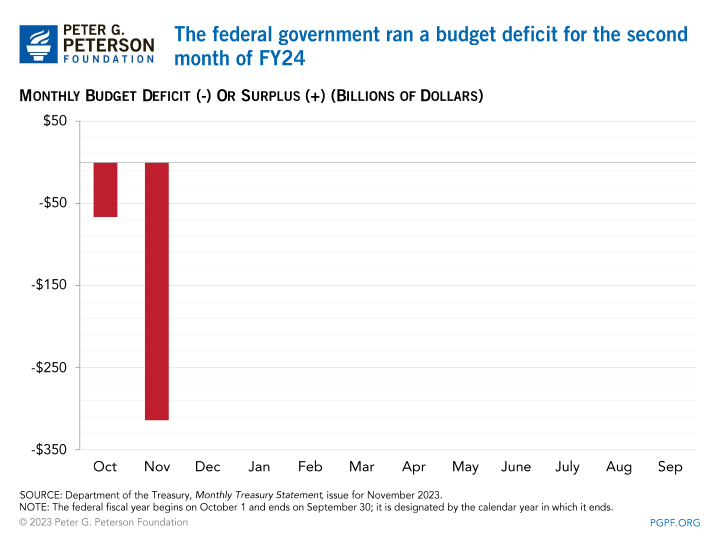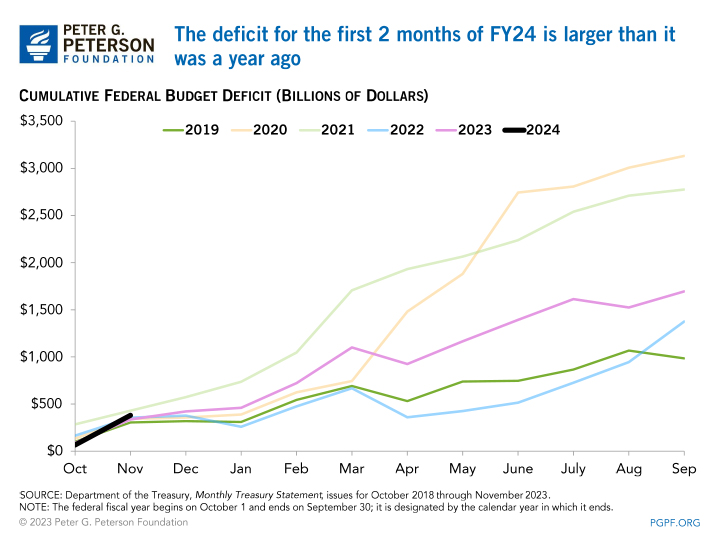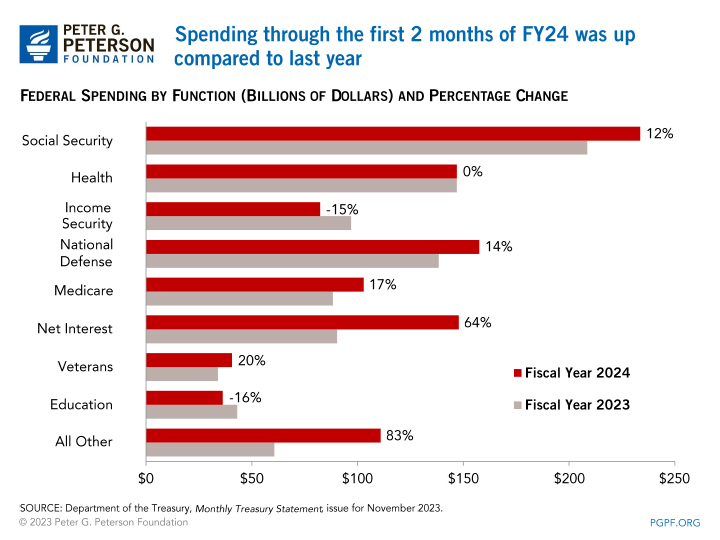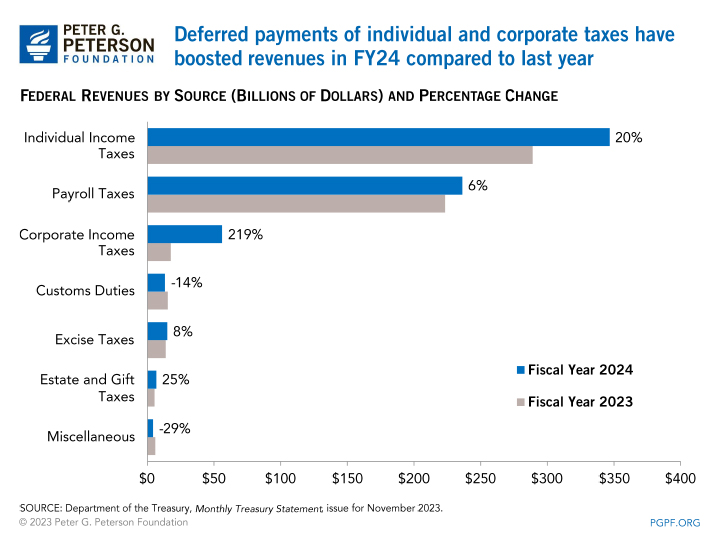You are here
Federal Deficit and Debt: November 2023
Every month the U.S. Treasury releases data on the federal budget, including the current deficit. The following contains budget data for November 2023, the second month of fiscal year (FY) 2024.
Current Federal Deficit

- Federal Budget Deficit for November 2023: $314 billion
- Federal Budget Deficit for November 2022: $249 billion
The federal government ran a deficit of $314 billion in November 2023 -- $65 billion more than the deficit of $249 billion that was recorded in November 2022. Spending in November 2023 was up $88 billion compared to last year, driven by a $48 billion increase in outlays of the Federal Deposit Insurance Corporation (FDIC) due to its role in resolving bank failures earlier this year. Other categories that increased significantly were Net Interest ($25 billion), Social Security ($12 billion), and Medicare ($10 billion). Revenues in November 2023 were $23 billion above collections from a year ago, driven by deferred payments of individual and corporate income taxes for taxpayers in locations that suffered natural disasters.
Cumulative Federal Deficit

- Cumulative FY24 Deficit: $381 billion
- Cumulative FY23 Deficit: $336 billion
This year’s cumulative deficit is $44 billion above last year’s level. However, because October 1 fell on a weekend in 2022 and 2023, certain federal payments were shifted into the previous fiscal year in FY23 and FY24. Without those effects, the deficit for FY24 to date would be $53 billion above last year’s corresponding total.
For the first two months of FY24, total outlays were $1.1 trillion, $152 billion higher than the same period in the previous year. Adjusting for timing shifts, spending was $161 billion above the same period last year. The FDIC and Net Interest spending account for most of the outlay growth, increasing by $63 billion and $57 billion, respectively, compared to last year. Partially offsetting the increase in outlays were an increase in the Treasury’s receipts of agencies’ contributions for military retirement of $9 billion (which is recorded as a decrease in outlays) and an $8 billion decrease in spending related to the end of emergency funding for the Supplemental Nutrition Assistance Program.

Through the first 2 months of FY24, total revenues have increased by $108 billion compared to the previous year. Collections of individual and corporate income taxes have been much higher in FY24 than through the first 2 months of FY23.

National Debt

- Debt Held by the Public at the end of November 2023: $26.7 trillion
- Debt Held by the Public at the end of November 2022: $24.5 trillion
Since the financial crisis in 2008, debt held by the public has nearly tripled relative to the size of the economy and is projected to grow even more in the future. The unsustainable upward trajectory of deficits and debt argues for bipartisan solutions to improve the country’s fiscal outlook, including a fiscal commission.
